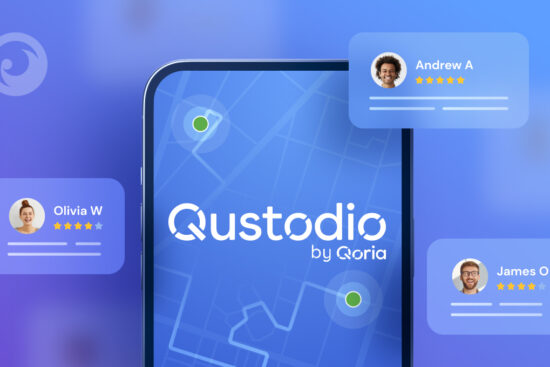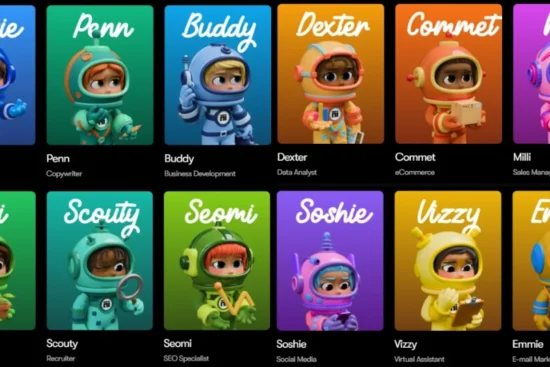
Artificial Intelligence (AI) has evolved far beyond simple automation and now powers intelligent systems capable of deeply personalizing user experiences. At the forefront of this revolution are AI personal assistants—versatile tools that streamline workflows, accelerate learning, and enhance daily living. The latest advancements in AI, dubbed “AI Personal Assistants 2.0,” go beyond scheduling reminders or answering queries; they’re reimagining how we interact with technology across all facets of life. Let’s explore how these cutting-edge assistants are shaping work, learning, and everyday experiences.
Revolutionizing the Workplace
AI personal assistants have become indispensable allies in the modern workplace. By integrating seamlessly with tools and platforms, these systems enhance productivity, collaboration, and efficiency.
Task Management and Scheduling
The ability of AI assistants to manage complex schedules is unmatched. Tools like Google Assistant, Microsoft Cortana, and AI-powered systems in enterprise platforms can:
- Coordinate meetings by analyzing participants’ calendars.
- Prioritize tasks based on deadlines and importance.
- Send automated reminders for upcoming tasks or meetings.
Beyond simple scheduling, AI assistants are equipped with predictive analytics. For instance, they can identify patterns in workload and suggest optimal times for breaks, thus preventing burnout.
Enhancing Communication
AI personal assistants are revolutionizing communication in the workplace. By integrating with email and messaging platforms, they:
- Filter and prioritize emails to highlight urgent messages.
- Summarize lengthy conversations for quick insights.
- Automate responses to routine queries through natural language processing (NLP).
Advanced systems like Grammarly and ChatGPT, used as plugins, assist in drafting error-free, professional correspondence, saving time and effort for employees.
Data-Driven Decision-Making
With AI assistants analyzing large volumes of data in real time, decision-making has never been more informed. These systems can:
- Generate insights from business analytics tools like Tableau or Power BI.
- Forecast market trends using predictive modeling.
- Provide actionable recommendations based on data patterns.
For example, sales teams use AI to assess customer sentiment and refine their strategies, while HR departments utilize AI to analyze employee engagement metrics.
Empowering Lifelong Learning
Education and learning are being transformed by AI personal assistants, which offer tailored learning experiences and facilitate knowledge acquisition.
Personalized Learning Journeys
AI-powered learning assistants, such as Duolingo’s AI tutors or platforms like Khan Academy, provide:
- Real-time feedback on performance.
- Adaptive learning paths that adjust content difficulty based on user progress.
- Interactive learning experiences through simulations and gamified lessons.
For students and professionals alike, AI assistants act as virtual tutors, helping them master new subjects at their own pace and on their own terms.
Knowledge Retrieval and Organization
AI personal assistants make it easier to manage and retrieve information. For instance:
- Students can use AI tools to summarize research papers, generate citations, and organize notes.
- Professionals benefit from features like real-time transcription during meetings or automatic generation of executive summaries.
The result is streamlined access to knowledge, allowing users to focus more on learning and less on administrative tasks.
Skill Development and Career Advancement
AI personal assistants are increasingly involved in skill-building initiatives. Platforms like LinkedIn Learning or Coursera integrate AI to recommend courses based on career goals and past learning history. Furthermore, AI assistants can:
- Highlight skill gaps based on job market trends.
- Recommend certifications or training programs to close those gaps.
- Simulate interview scenarios to prepare job seekers effectively.
By blending career coaching with AI-driven insights, individuals can navigate career paths with clarity and confidence.
Simplifying Daily Life
AI personal assistants have made significant inroads into simplifying and enriching daily living. From managing household chores to enhancing entertainment experiences, these tools are making life more convenient.
Smart Home Integration
In the realm of smart homes, AI assistants like Amazon Alexa, Google Assistant, and Apple’s Siri are pivotal. They:
- Control smart devices such as lights, thermostats, and security cameras.
- Provide voice-activated commands for instant adjustments.
- Monitor energy usage and suggest optimizations to reduce costs.
For example, an AI assistant can automatically adjust the thermostat based on weather forecasts, ensuring a comfortable environment without manual intervention.
Health and Wellness
AI-powered personal assistants are playing a crucial role in promoting health and wellness. Applications include:
- Monitoring fitness goals through wearables and apps like Fitbit or Apple Health.
- Offering meditation and mindfulness exercises via platforms like Calm or Headspace.
- Scheduling medication reminders and tracking symptoms for chronic conditions.
These assistants provide personalized recommendations based on health data, enabling users to take proactive steps toward better well-being.
Entertainment and Leisure
AI assistants are enhancing how we enjoy leisure time. They can:
- Curate personalized playlists on platforms like Spotify or Apple Music.
- Recommend TV shows or movies based on viewing habits.
- Create immersive gaming experiences through AI-driven interactions.
With features like these, AI assistants ensure that relaxation and entertainment are tailored to individual preferences, making downtime more enjoyable.
Ethical Considerations and Challenges
While AI personal assistants offer immense benefits, their rise also presents challenges and ethical considerations.
Data Privacy and Security
AI assistants rely heavily on personal data to function effectively, raising concerns about data privacy and security. Companies must ensure:
- Robust encryption methods to protect sensitive user information.
- Transparent data usage policies that allow users to control how their data is shared.
- Compliance with global regulations such as GDPR and CCPA.
Bias and Fairness
AI systems are only as unbiased as the data they are trained on. Efforts must be made to:
- Mitigate algorithmic bias to ensure fairness in recommendations and decisions.
- Continuously audit AI models for ethical compliance.
- Promote inclusivity by catering to diverse user needs and preferences.
Dependency and Digital Well-Being
As AI personal assistants become integral to daily life, there is a risk of over-dependence. Striking a balance is key to ensuring users retain critical thinking and decision-making skills. Additionally, developers must design systems that promote healthy technology usage habits.
The Future of AI Personal Assistants
Looking ahead, AI personal assistants are set to become even more sophisticated. Trends include:
- Multimodal Interactions: Combining voice, text, and visual interfaces for seamless user experiences.
- Emotional Intelligence: Developing AI systems capable of understanding and responding to emotional cues.
- Hyper-Personalization: Leveraging deep learning to offer highly tailored solutions based on unique user preferences and behaviors.
These advancements promise to further integrate AI assistants into every aspect of life, making them indispensable companions for both personal and professional growth.
Final Words
AI Personal Assistants 2.0 are not just tools; they are transformative forces reshaping how we work, learn, and live. By streamlining complex processes, enhancing learning opportunities, and simplifying daily tasks, they empower individuals to achieve more with less effort. However, as we embrace this technological marvel, it’s vital to address ethical challenges and foster responsible usage.
The journey of AI personal assistants is just beginning, and the possibilities are boundless. Whether in the office, the classroom, or at home, these intelligent systems are poised to redefine the future, making life more efficient, engaging, and enriched.












